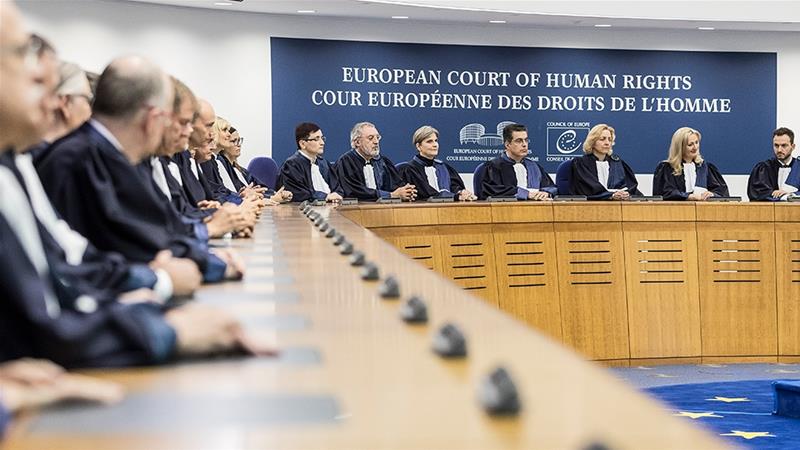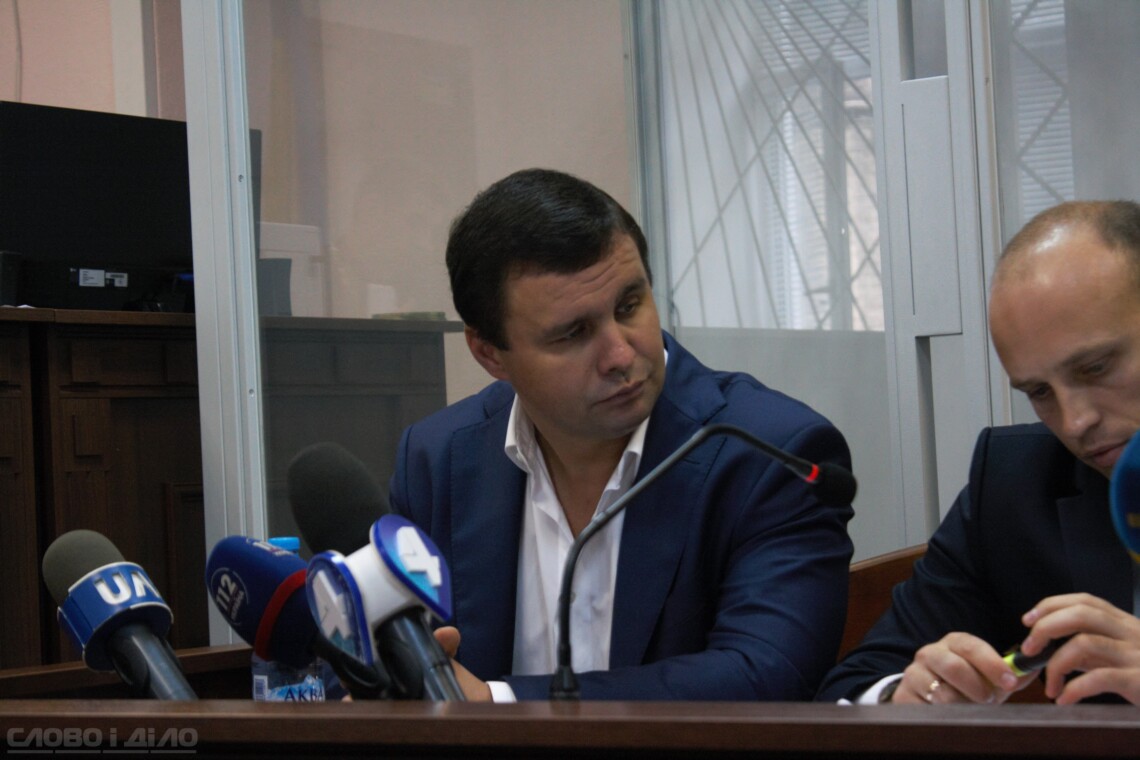

Last week, the HACC Appeals Chamber imposed one of the largest bails in the history of Ukraine, of more than UAH 229 mln, on Andriy Kobolyev. On March 7, NABU detectives referred a motion to the HACC to keep Kobolyev in custody with an alternative to a bail of UAH 365 mln.
This is not the first time a bail with six zeros is imposed during the investigation of corruption cases against senior officials — for example, the case of Mykytas (UAH 100 mln) or Martynenko (more than UAH 27 mln). However, such bail amounts exceed the limits established by law and are allowed only as an exception to the rule.
Pavlo Demchuk, legal advisor to Transparency International Ukraine has figured out how the court calculates the amount of bail, and what influences its decision.
How is the issue of the size of the bail regulated in the national legislation?
Let’s start with legislation. Most corruption crimes, which involve significant bail amounts, are particularly serious. The Criminal Procedural Code of Ukraine states that the court can assign a bail of no more than three hundred subsistence minimums for able-bodied persons, that is, UAH 805,200 in 2023. However, there are exceptions to this rule: if, in the opinion of the court, such a bail cannot ensure that the suspect/accused fulfills the duties assigned to them by the court (or the law).
It should be understood that the bail is an interim measure, that is, it is used so that the suspects/accused do not escape, do not put pressure on witnesses, do not destroy material evidence. The bail in no case performs the functions of punishing a person or compensating for losses.
When determining the amount of bail, the court must consider the circumstances of the criminal offense, the property and marital status of the suspect or accused, as well as other data on the person and the risks provided for in Article 177 of the Criminal Procedural Code of Ukraine (for example, evading justice, obstructing the investigation). The amount of bail must not be excessive for the suspect or accused.
A logical question arises: which of these circumstances is decisive?
The bail in no case performs the functions of punishing a person or compensating for losses.
Pavlo Demchuk
Practice of the European Court of Human Rights on bail

The European Court of Human Rights. Photo: Kharkiv Human Rights Protection Group
Certain answers to questions about determining the amount of bail can be found in the practice of the European Court of Human Rights (ECHR):
- the prospect of losing bail if a person fails to appear in court must act as a sufficient deterrent to dispel any desire of the suspect or accused to hide (clause 78 of the Mangouras v. Spain judgment);
- the amount of the bail must be assessed, first of all, considering the identity of the suspect or accused and their assets, but also, in certain circumstances, the court should consider the amount of damages attributed to the defendant in the proceedings (clause 81 of the of Mangouras v. Spain judgment);
- exclusive attention to the amount of probable damages is a violation of the Convention for the Protection of Human Rights and Fundamental Freedoms. That is why, the court should also carefully assess the ability of a person to pay the defined amount of bail and justify the defined amount (clause 32 of the Istomina v. Ukraine judgment).
The ECHR assesses the amount of bail in the context of the right to freedom and personal immunity, when bail is an alternative to detention and the possibility of paying it depends on the person’s stay in a detention center or at large.
The ECHR assesses the amount of bail in the context of the right to freedom and personal immunity, when bail is an alternative to detention and the possibility of paying it depends on the person's stay in a detention center or at large.
Pavlo Demchuk
What tendencies can be traced when determining the amount of bail by the judges of the HACC and the HACC AC?
In the case of suspecting Maksym Mykytas of bribing the mayor of Dnipro, the investigating judge, in determining the amount of bail, paid great attention to the problem of corruption in the Ukrainian society, as well as to the suspect himself:
“The exceptional social danger of such a crime is that it is hypothetically committed by a person who used to hold the positions of a member of the Kyiv City Council and an MP of Ukraine, for many years cooperated with other state bodies, reached the highest levels of social status and a fully secured property status.” Thus, he even went beyond what the prosecutor asked for (UAH 200 mln) and imposed a bail of UAH 260 mln.
Maksym Mykytas. Photo: Slovo i Dilo
The court of first instance imposed the bail in the amount of UAH 6,202,500 on the ex-head of the Poltava Regional State Administration Valerii Holovko. Let us remind you that he is suspected of receiving a bribe for ensuring victory in the tender for the maintenance of roads and fraud.
Valerii Holovko. Photo: poltava.to
In this case, the court considered the fact that the suspect was a civil servant, and such behavior discredits him as a representative of a public authority and may damage the authority of the institution represented by Holovko and the authority of the state as a whole. The court also paid attention to the income of the suspect for 2020-2021, which amounted to almost UAH 10 mln.
The HACC Appeals Chamber decided that this amount of bail was too small. The judges pointed out that the suspect allegedly received a car with an estimated value of EUR 320,000, cash in the amount of EUR 176,000 and USD 100,000 as an illegal benefit. That is, the determining factor, in addition to official income, was the information about the probable size of the received illegal benefit.
Mykola Martynenko is suspected of having received a bribe from the management of the Czech company SKODA JS a.s. in the amount of EUR 311,500 for the assistance and lobbying of the interests of the said Czech company in Ukraine. The court of the first instance assigned him a bail of UAH 4,962,000. The HACC proceeded from the circumstances of committing criminal offenses, documents, submitted by the defense that, in particular, confirmed the property status of the suspect and his stable social ties, reputation, and state of his health.
Mykola Martynenko. Photo: Dmytro Replianchuk/Hromadske
The Appeals Chamber, analyzing the same arguments of the parties, did not agree with this amount of bail. The judges assessed the property, social and family status of the suspect, his previous political activity, as well as his status as an MP of Ukraine for more than 15 years, the permanent residence of children abroad. They decided that the bail of almost UAH 5 mln is not able to sufficiently prevent the attempts to hide from the bodies of pre-trial investigation and the court, influence on witnesses in criminal proceedings. Therefore, the amount of bail should be increased, considering the arguments of the prosecutor. The judges determined the bail of UAH 24.7 mln.
In the case related to the procurement of generators in the context of the energy crisis, when determining the amount of bail for Serhii Kryvyi (the probable organizer), the investigating judge took into account the fact that he was suspected of committing a serious corruption crime.
A particular public danger of an alleged crime is that it is committed in conditions of war. In such circumstances, personal enrichment by criminal means is unacceptable and especially cynical. After all, in fact, the alleged illegal benefit, according to the materials of the motion, should have amounted to 8% of the contract price, while such funds could have been directed to expenditures in other urgent areas of state financing.
Moreover, the investigating judge considered the property status of the suspect and chose an interim measure of more than UAH 100 mln. The Appeals Chamber agreed with this decision of the court.
Conclusions
In the practice of the HACC and the HACC AC, several trends can be traced.
For the most part, the property status of suspects and accused is taken into account. However, the fact that the property of the suspect may be seized is not always considered. That is, in fact, they cannot sell any real estate to pay the bail or cannot transfer funds from a blocked bank account.
Sometimes, the presence of property abroad or the residence of the family there is not good for the suspect. Then the court can establish that the center of vital interests of the suspect is not located in Ukraine, so the suspect can easily hide abroad.
The gravity of the criminal offense of which the person is suspected or accused is also considered. It can be considered both formally (indicating the severity of the crime or the problem of corruption) and substantively (an analysis of the likely mechanism of committing the crime).
What matters is what crime is likely to have been committed. If a person is charged with criminal misappropriation of funds, the investigators may ask for a large amount of bail due to the fact that the person has “criminal proceeds,” from which they can pay the bail.
This approach of the court in most cases is justified because the defendants in criminal proceedings on suspicion of corruption are often people who have made a lot of money. And the logic of bail is that its size will deter a person from escaping or otherwise obstructing the investigation. But do not forget about the additional circumstances that affect the amount of bail. For example, the possibility of another person paying the bail, the presence of children or the absence of a permanent place of work, the seizure of the accounts of a person. Assessment of this in total allows making a conclusion about the moderation or immoderation of the bail for a person.
The court has a difficult task — to determine what amount of bail will really ensure that the suspect or accused fulfill their procedural obligations and will not be excessive for them.
Pavlo Demchuk
This publication was prepared with the financial support of the European Union. Its content is the sole responsibility of Transparency International Ukraine and does not necessarily reflect the views of the European Union.









